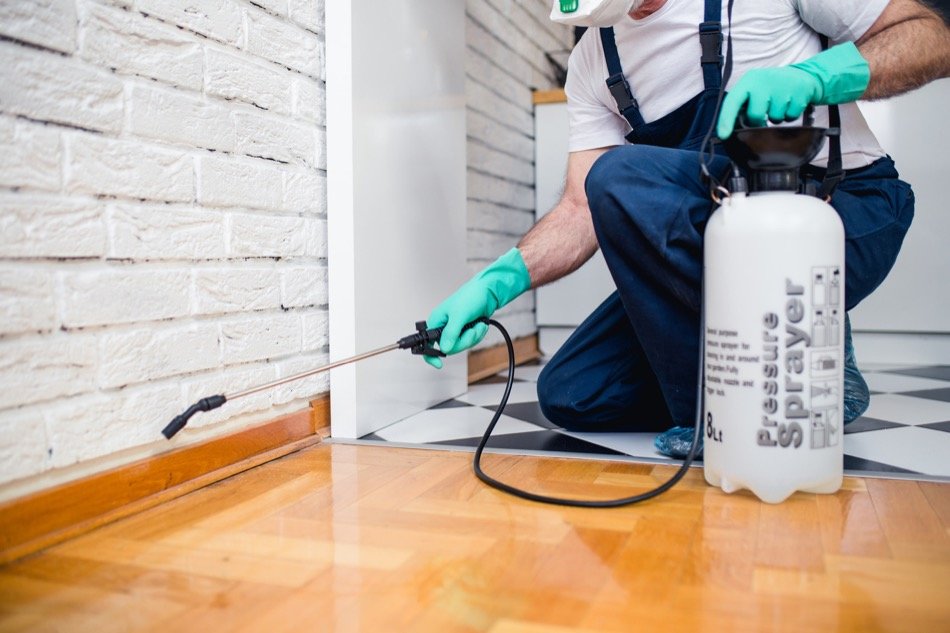DIY Pest Prevention: Easy Ways to Keep Pests OUT of Your Home
Posted by Dave Kotler on Thursday, April 27th, 2023 at 9:23am.
 Having pests in a home isn't fun, and a homeowner who finds them will want to get rid of them quickly and keep them from coming back inside. Fortunately, there are many good DIY ways to keep pests at bay. While sometimes professional help is necessary, it can be costly. It's often easier and far less expensive to take the DIY approach to get pests out of your house. Whether you're dealing with rats or getting rid of termites, here are some of the most important things for any homeowner to consider when choosing DIY options for home pest removal.
Having pests in a home isn't fun, and a homeowner who finds them will want to get rid of them quickly and keep them from coming back inside. Fortunately, there are many good DIY ways to keep pests at bay. While sometimes professional help is necessary, it can be costly. It's often easier and far less expensive to take the DIY approach to get pests out of your house. Whether you're dealing with rats or getting rid of termites, here are some of the most important things for any homeowner to consider when choosing DIY options for home pest removal.
There are DIY Options to Get Rid of Pests
Pest control is a home improvement project you can DIY in most situations. There are plenty of DIY chemicals and treatments to choose from. Most big box retailers and home improvement stores offer a number of chemicals, traps, treatments, and other devices that can be used.
Reading the directions and using the purchased items correctly is very important in order to reduce the risk of harm to the homeowner, their family, their pets, and their house in general. Some chemicals are safer than others, and there are also natural treatments, such as vinegar, baking soda, cinnamon, and others, that can be used, as well.
What Types of Pest Get in the Home?
A homeowner will first need to identify the types of pests that have gotten into their home. Not all pests can be handled the same way, and DIY options for some types of pests may be more limited than the options that are available for others.
Bats in the attic, for instance, can be harder to get rid of than ants in the kitchen. But there are always DIY options to be considered, based on the type of pest that has gotten in, where it's located, and whether it's a large number of creatures or only a couple.
Common Signs of a Pest Infestation
One of the first signs of a pest infestation is hearing strange noises in your home. Pests like mice, rats, and even larger critters like raccoons and squirrels can make scratching, scurrying, or gnawing sounds, especially at night. Keep your ears open for any unusual noises, and investigate the source to determine if you have a pest problem.
Pest droppings are a clear indication that you have unwelcome visitors in your home. Look for small, dark pellets in areas where pests are likely to frequent, such as behind appliances, in cabinets, and along baseboards. Additionally, be on the lookout for urine stains that could accompany the droppings, as these can cause unpleasant odors and even damage to your home.
Pests like rodents and insects are notorious for chewing through food packages and causing damage to your home. Inspect your pantry for any gnawed or punctured food packages, which could indicate that pests have been feasting on your groceries. In addition, keep an eye out for any damage to your home's structure, such as chewed wires, holes in walls or floors, and shredded insulation.
Sealing Up Your Home Stops Pest Invasions Before They Start
Sealing up a home is among the best ways to keep pests at bay. Homeowners who want to reduce pest problems will need to treat the home for the pests they already have, but they will also need to ensure they keep pests from getting in again.
If the house isn't sealed properly, pests will simply come back into the house, even if they've been chased out. It can become an ongoing and frustrating problem. When a homeowner takes careful stock of their home and the ways in which creatures can get in, they can focus on reducing options for pests to enter their home. Sealing your home is a great way to keep pests out and also make your home more energy efficient.
What Types of Treatments Should Be Used?
It's important that any homeowner buys the right treatment options for the pests they have in their home. The wrong options won't take care of the pests and could even be dangerous for the homeowner, their family, or their pets. Some treatment options can be very hazardous, while others are a much safer choice. If natural options can be used, that's generally a better idea. These options often include things that a homeowner already has in their home instead of harsh chemicals. But that's not an option for all kinds of pests, and in some cases, a stronger chemical is needed to get the pests out of the home and keep them from coming back into the home in the future.
Keep Pests Away the DIY Way
DIY pest remediation methods can be both cost-effective and empowering for homeowners seeking to tackle their pest problems head-on. By combining preventative measures, natural solutions, and targeted treatments, you can successfully address many common infestations without resorting to harsh chemicals or professional intervention. Remember that not all pests can be managed with DIY approaches, and some situations may require a professional exterminator. As you embark on your journey towards a pest-free home, stay vigilant, informed, and open to adapting your strategies as needed. After all, creating a healthy, comfortable living environment is the best way improve your home.
Dave Kotler

